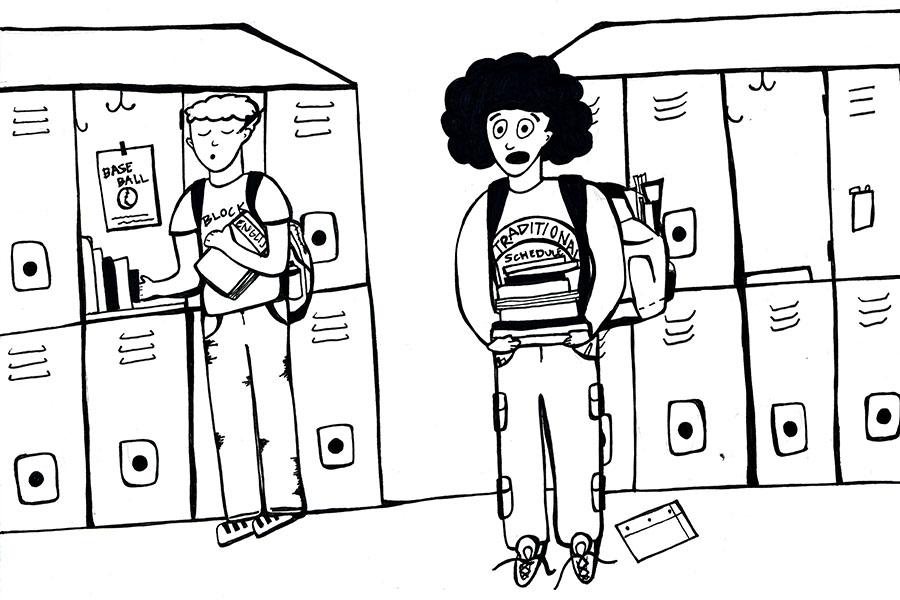Staff editorial: block scheduling should be kept
The Board of Education should recognize that the benefits of block scheduling outweigh those of traditional scheduling
Recently a study was requested by the Board of Education to investigate the pros and cons of block scheduling and traditional scheduling. Block scheduling splits eight classes between two days and is our current scheduling type, while traditional scheduling has the same seven classes taking place every day. JagWire supports the results of the study, which were highly favorable of block scheduling.
Traditional scheduling uses smaller class periods, which make it easier for students to pay attention through the entire class. However, traditional scheduling should be avoided because certain classes benefit from having longer class periods. Fine arts, physical education and lab-based science classes need a certain amount of time to prepare and clean up in addition to the actual lesson. AP classes also require long time blocks because of lengthy timed AP practice tests. The long time blocks are especially valuable to our newspaper staff because we need the time in class to work with each other in order to create our publication.
Eudora Ed-Tech classes would also no longer be an option if class blocks were shortened. These classes provide career preparation that can’t take place on our own campus. The loss of these classes would negatively affect our students that want to go into the careers that Ed-Tech helps them prepare for.
Teachers would have to change their lesson and homework plans to accommodate the smaller time periods. Changing every lesson plan to accommodate the smaller blocks would not be worth the trouble. Lunch and passing periods would also be shortened, resulting in a higher chance of tardies and a more rushed lunchtime. The schedule changes would also result in the potential loss of seminar classes and plan periods for teachers.
Another possible effect of having classes every day would be an increased homework load. Students would have homework for three more classes in half of the time that is currently offered. A greater amount of work to be done in a shorter period of time could lead to increased stress levels among students. Also, block scheduling allows time for students to ask teachers questions about their homework at least a day before it is due.
If the board considers changing the schedule type in the future, we ask that they keep in mind the consequences of changing it from a format that is already clearly beneficial to students and staff.












